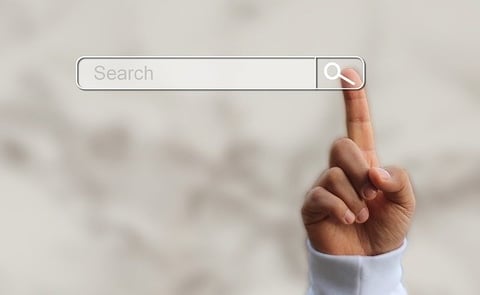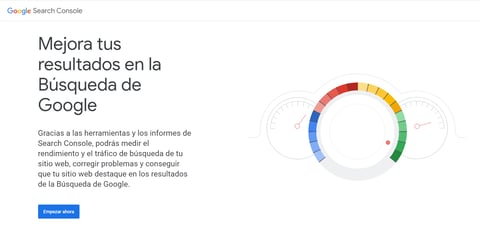Index Content
Indexing your content is a fundamental part, because if Google does not perform this process, then you are practically invisible since you do not appear in any search query. This means that you do not generate any organic traffic to your website.
Every time you create, add or modify content on your website, Google bots take some time (up to several days) to detect it, analyse it and add it to their index. Once this process is finished, your content appears in the search results. But ideally, this process should be accelerated so that your content is available as soon as possible.
In this post we will tell you what tools exist to index pages in Google, but first we will explain what this process is all about so that you don't have any doubts. Enjoy reading!
what is indexing?
Indexing is the process by which Google links a web page to its index in order to show it in the search results, i.e. your website will become part of the search engine, it will be available and will appear when users perform their searches.
If this process is not carried out successfully, your website will not appear in the SERP or search results page, and therefore, you will be practically invisible to users. Hence the importance of doing it right, because indexing is a fundamental aspect and has to be present within the SEO strategy or search engine positioning.
Indexing is a necessary process for your website, firstly because you need to appear in the search results when users make their query, as this translates into visits to your website, and therefore, this traffic increases the chances of generating conversions and sales.

Tools to index pages in Google
- google Search Console
Using this free tool offered by the search engine is a good way to add your content for Google to verify and add it to its index as soon as possible.
You need to link your website to Google Search Console to tell Google that you are the owner of that website, so the first step is that you have an account with Google Search Console and you have registered your site.
This method of indexing is manual, as you are the one doing the work, so to speak. Once inside the platform on the left side menu you will find the option "URL inspection". Here you just have to add the URL of the page you want to index. If Google has already done this process it will appear as already indexed, if it is the opposite, you will have to click on the "request indexing" button. Google will put it in the queue to analyse it and add it to its index.
This process is a good practice every time you make a modification or publish new content, because you are telling Google that you have added and therefore, it has to analyse it.

- create a sitemap
A sitemap is a code file that lives on your web server and lists all the relevant URLs on your website. It is designed to help search engines in the crawling process, allowing Google to evaluate and rank pages more easily.
We show you different tools where you can create your sitemap:
- Hubspot. This platform contains tools to create your XML sitemap easily. Hubspot automatically adds your web pages hosted on their servers and creates XML files to submit to Google Search Console.
We leave you this link so you can configure your XML sitemap in Hubspot .
- yoast SEO- If your website is built on the Wordpress platform, you can use this plugin to index pages. Yoast SEO is an easy to install plugin and also provides you with other SEO tools.
Once you have this plugin downloaded you just need to enable the XML sitemap option.
why do you have to index your page in Google?
- if you don't, you won't exist in the search engines. You can have the most beautiful website with the best content, but if it's not indexed, you have nothing to do.
- google has a crawler software, Googlebot, and it constantly browses the web looking for new pages or updates. If you index correctly all the new content you add to your website, it will keep finding you. This way you will appear in the SERP and users will find you when they search.
- when you achieve correct indexing, the result is more traffic and an improvement in your SEO ranking.
- the more URLs you have indexed under the same domain, i.e. on the same website, the more weight you will have in the search engine against the competition.
- as soon as you carry out the process of indexing your page in Google, it will assign it a position, and this position will vary depending on the rest of your SEO work, both on-page and off-page, which is why it is very important to get it right so that you don't lose all your work.
We have to keep in mind that not all your content has to be indexed, there are elements that are not necessary, such as legal pages, tags, internal search engine results, etc. We must have indexing limits and put what is really essential.

Indexing in Google is a priority process for any website, so you can't leave this task undone. At first you may find it difficult, but once you get the hang of it, indexing and checking that everything is correct will be a quick and easy task.
we hope we have helped you!





